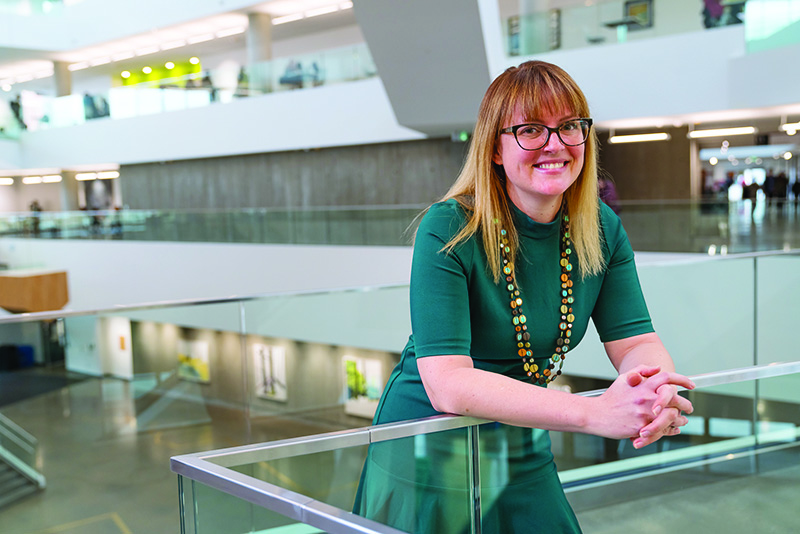There’s a lot of people talking about the energy sector. Jennifer Long wants to know how the people who live and work in the oilpatch feel about the industry’s future.
Long is a cultural anthropologist and associate professor at MacEwan University in Edmonton. She has moved to Cold Lake to meet local people and experience the quality of life that comes with living where oil and gas is king.
“I’ve come to live in Cold Lake—temporarily, but I’m here,” Long said. “I’m renting a local space, I’ve joined the gym, and I’m meeting with locals to discuss their beliefs.
“What do they think about the future of energy?”
Her research has her talking to people who work in the sector, as well as others who live in both the glow and the shadow of the lucrative but volatile resource economy.
She says a big part of her research is talking to people of different generations to see how they view energy’s future. She wants to speak with the people working in the field, and perhaps especially, to local parents and grandparents.
Climate change and emissions-reduction targets have focused attention on the energy sector. Initiatives like the Pathways Alliance carbon capture project offer opportunities and challenges, Long says, and she’s wondering how people feel conflicting priorities should affect the future of energy.
“For example, Canada’s signed on to the Paris Accord. They have certain ideas about what they’d like to achieve by 2030, by 2050,” Long said.
“How do those filter down to the local area where folks are thinking about, ‘this is what I want for my kids,’ or ‘this is where I’m working and I want to make sure my kids have the opportunity to work in the oil and gas sector as well, because it’s lucrative. It provides support for my whole family.’”
Her research techniques include one-on-one interviews and “paired interviews,” where she speaks to couples.
“One or both can work in the oil and gas industry, and I’m asking them to do an interview together,” Long said.
“Why? Because they correct each other, and they say, ‘oh, don’t forget that part.’ It fills in gaps that I might not get when I’m interviewing one-on-one.”
She will also be hosting two focus groups at the Cold Lake Legion on October 23 and 30. She’s looking for people over the age of 18 who want to participate and give input.
“The goal of focus groups is to have questions where people can build on each other’s answers,” she said. “The idea is to maybe come to a consensus—or not. It’s those friction and tension points, or it’s where people pile on and say, ‘I agree’ that makes those so interesting.”
Long intends to report her findings on a website and in person in Cold Lake in the new year.
She wants her research to add the voice of oilpatch workers and community members to the discussions about the industry’s future.
“Who makes the decisions and who should be at the table when deciding where we go in future directions?” Long asks. “So far, all I’ve heard is large supranational organizations, something like OPEC or government officials. And so a lot of local folks don’t feel like they have much of a voice.”
She invites anyone in the area, even extending to Bonnyville and St. Paul, to contact her if they would like to participate in an interview or focus group.
She can be reached via email at longj34@macewan.ca. The Cold Lake Library’s north branch is keeping a callback list for those who prefer to make contact by phone. The branch’s phone number is (780) 639- 3967.
